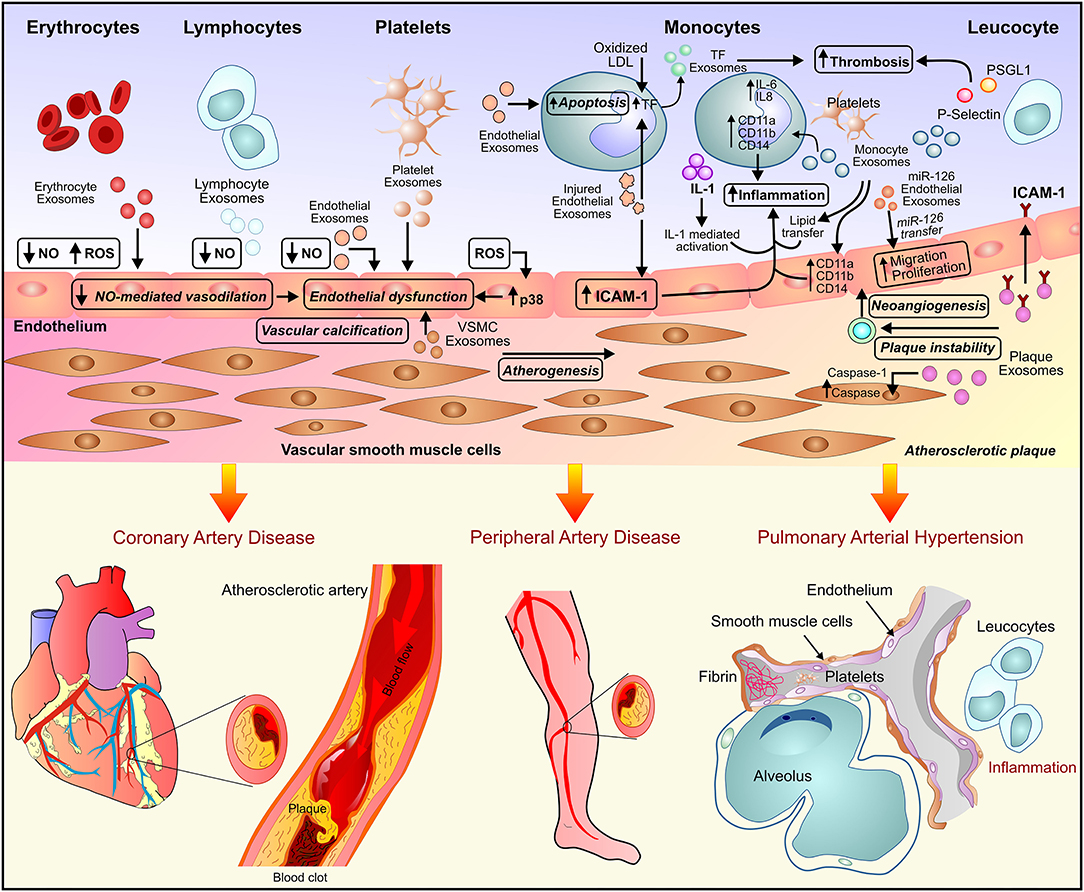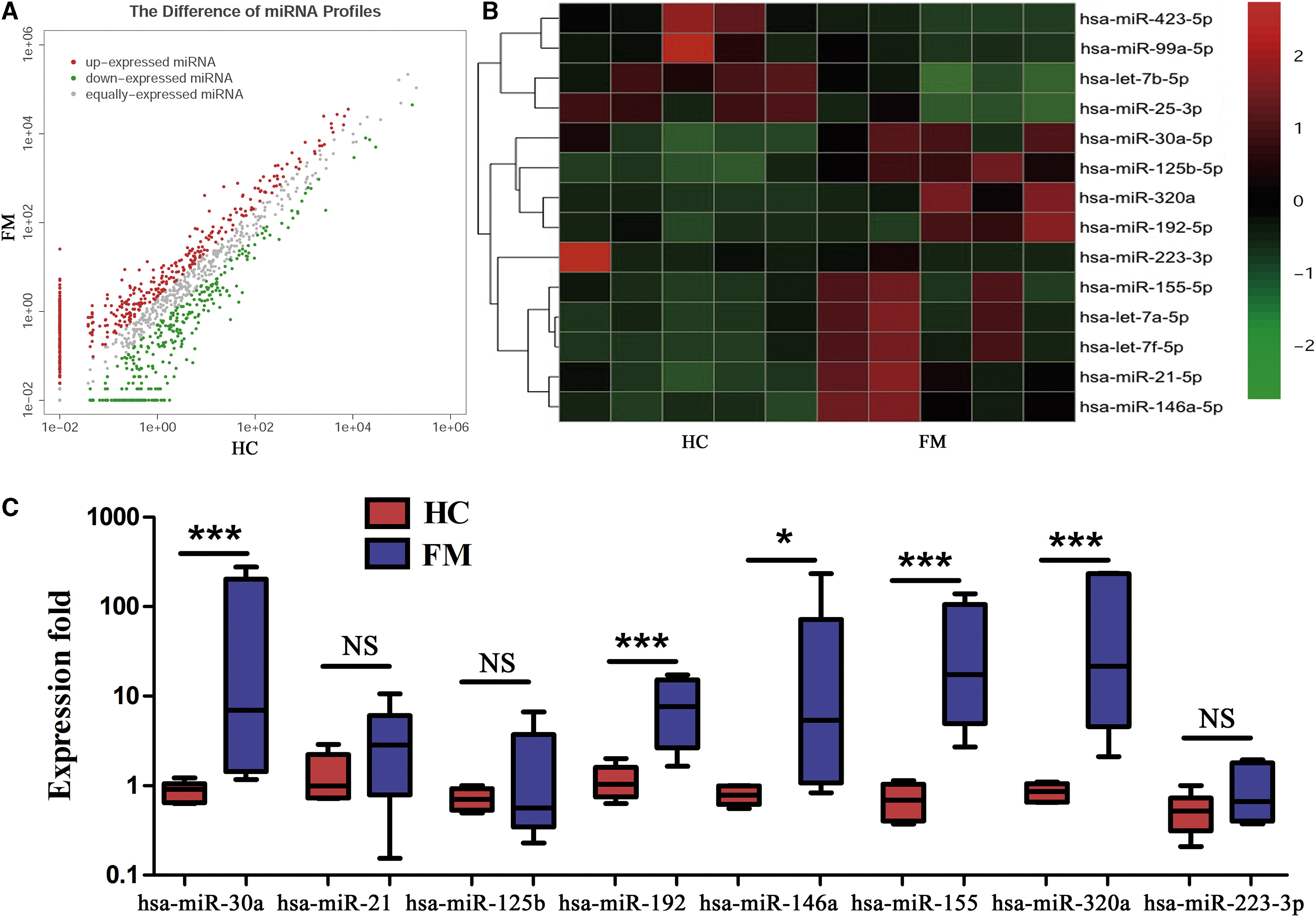Cardiovascular Diseases Diagnosis-Applied Exosomes
Cardiovascular Diseases Diagnosis-Applied Exosomes isolates exosomes from the patient's blood or other body fluids, and uses high-throughput sequencing, mass spectrometry and other methods to analyze the nucleic acids and protein molecules they carry, in order to find specific biomarkers related to cardiovascular disease.
Cardiovascular diseases (CVDs) are among the leading causes of mortality worldwide, including coronary artery disease (CAD), myocardial infarction (MI), heart failure (HF), and atherosclerosis (AS). Early detection and precise diagnosis are crucial for reducing the risk of cardiovascular events. However, existing cardiovascular biomarkers still face challenges in early diagnosis difficulty and poor biomarker stability in clinical applications.

Jadli A. et al. Frontiers in cardiovascular medicine. 2021.
Figure 1. Exosome-mediated paracrine signaling and development of vascular diseases.
Exosomes are nanoscale vesicles secreted by cells into bodily fluids, enriched with miRNAs, mRNAs, lncRNAs, circRNAs, and proteins, enabling the stable transport of cell-derived biomolecules. Studies have shown that exosomes, as bilayer lipid vesicles secreted by most cells, carry bioactive factors and signaling molecules associated with the pathophysiology of various cardiovascular diseases. By regulating gene expression, exosomes play a crucial role in cardiovascular system development and injury response. As a result, exosome-based cardiovascular disease diagnostics offer high specificity and stability, making them a promising tool for early screening, pathophysiological research, and personalized treatment of CVDs.
Leveraging multiple omics analysis platforms, MtoZ Biolabs provides Cardiovascular Diseases Diagnosis-Applied Exosomes service to promote the research progress of exosomes in cardiovascular disease diagnosis through comprehensive analysis of exosomes, and to assist precision medicine research and clinical transformation.
Service Advantages
1. High Stability: Exosomes exist stably in the circulatory system, and the miRNAs and proteins they encapsulate are not easily degraded, so they can more stably reflect the status of cardiovascular disease.
2. High Specificity: Analyzing exosomes derived from specific cell types directly reflects changes in the cardiovascular system. Utilizing CD9, CD63, CD81, and cardiac-specific marker proteins further distinguishes heart-derived exosomes, enhancing tissue specificity in detection.
3. Advanced Analysis Platform: MtoZ Biolabs established an advanced exosome analysis platform, guaranteeing reliable, fast, and highly accurate analysis service.
4. One-Time-Charge: Our pricing is transparent, no hidden fees or additional costs.
5. High-Data-Quality: Deep data coverage with strict data quality control. AI-powered bioinformatics platform integrates all exosome analysis data, providing clients with a comprehensive data report.
Applications
Research on early diagnosis of cardiovascular disease
By analyzing biomolecules in patient-derived exosomes, researchers can identify disease-specific biomarkers that enable early diagnosis of cardiovascular diseases.
Monitoring Disease Progression and Treatment Response
By examining changes in exosomal biomolecules at different disease stages and before and after treatment, researchers can identify biomarkers useful for monitoring disease progression and evaluating therapeutic efficacy.
Unraveling the Molecular Mechanisms of Cardiovascular Diseases
Investigating the role of exosomes in the onset and progression of cardiovascular diseases to gain deeper insights into disease mechanisms.
FAQ
Q. How to Verify the Origin and Characteristics of Exosomes?
Exosome validation typically involves multi-dimensional characterization methods, including morphological analysis, size distribution, and marker protein detection. For example, transmission electron microscopy (TEM) is used to observe exosome structure, while Western blot and other techniques detect exosome-specific proteins. Combining multiple validation methods ensures exosome purity and origin authenticity.
Q. What are the Advantages of Exosome-based Diagnosis Compared to Traditional Methods?
Exosome-based diagnostics allow for the early detection of cardiovascular diseases before symptoms appear and can be integrated with advanced technologies to achieve more accurate and reliable results.
Case Study
This study employed TEM, Western blot, NGS, and qRT-PCR to analyze exosomes, aiming to explore the potential of serum exosomal miRNAs as non-invasive biomarkers for the molecular diagnosis of fulminant myocarditis (FM). The results demonstrated that hsa-miR-155 and hsa-miR-320a were significantly upregulated in the serum exosomes of FM patients. This miRNA combination serves as an efficient non-invasive biomarker for FM molecular diagnosis, exhibiting superior diagnostic performance compared to traditional CRP and cTn testing.

Zhang Y. et al. Molecular Therapy Methods & Clinical Development. 2021.
Figure 2. Clustering analysis and confirmation of differential miRNA expression in serum exosomes from HCs and FM.
How to order?







